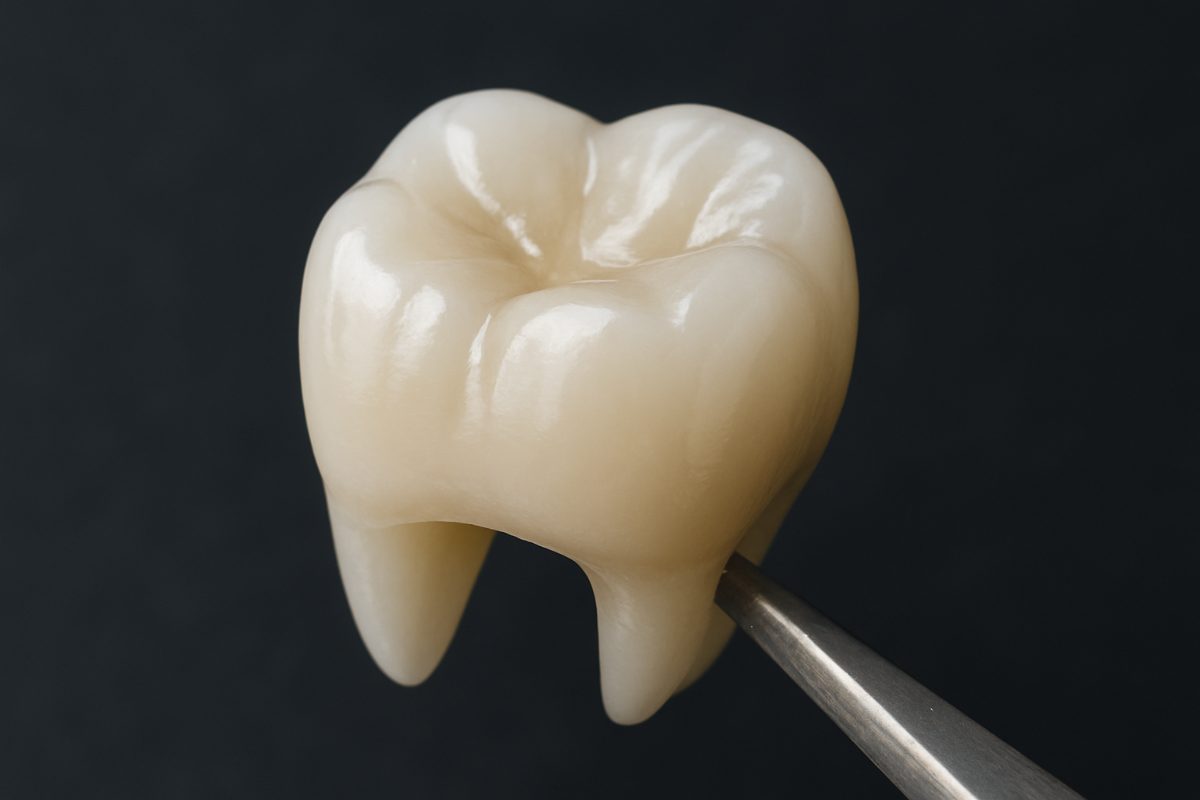Procedure For Dental Crown: What To Expect From Start To Finish Intro A procedure for dental crown in Glendive, MT is a common treatment to fix a damaged, weak, or misshapen tooth. Patients get crowns for large cavities, cracked teeth, after root canals, or to improve appearance. This post explains when a crown is needed, the types of crowns, a step-by-step look at the procedure for dental crown in Glendive, MT, what recovery is like, and basic cost and insurance notes.
When a dental crown is needed
Crowns protect and restore teeth that cannot be fixed with a filling alone. Common reasons include a large cavity, a fractured or cracked tooth, a tooth treated with a root canal, worn or thin teeth, and cosmetic concerns where shape or color must be corrected. Your dentist will recommend a crown when strength and long-term protection are needed.
Types of dental crowns and material choices
Crowns come in several materials: – Porcelain-fused-to-metal: strong and fairly natural looking but may show a dark line at the gum over time. – All-ceramic/porcelain: very natural in color and good for front teeth. – Zirconia: very strong and good for back teeth; newer zirconia can also look natural. – Gold/metal: extremely durable and requires less tooth removal but is not tooth-colored.
Same-day CEREC crowns vs. traditional lab crowns
Same-day CEREC crowns are milled in the office from a solid block of ceramic and can be placed in one visit. Traditional lab crowns use impressions sent to a dental lab and require two visits with a temporary crown in between. Same-day crowns are convenient; lab crowns may offer more material or color options for complex cases.
The procedure for dental crown: step-by-step
1. Initial exam and X-rays
The dentist examines the tooth, takes X-rays, and checks root health and bite. They decide if a root canal or buildup is needed before the crown.
2. Numbing and tooth preparation
The area is numbed. The dentist shapes the tooth by removing a small amount of enamel so the crown will fit. This may cause pressure but should be pain-free with local anesthesia.
3. Digital impressions or traditional impressions
Many offices use intraoral scanners (like iTero or Trios) for digital impressions. These are faster and more comfortable than traditional putty impressions and speed up crown fabrication.
4. Temporary crown or immediate milling
If you aren’t getting a same-day crown, a temporary crown is placed to protect the tooth while the lab makes the permanent one. With CEREC, the permanent crown can be milled and placed the same day.
5. Final crown cementation and adjustments
The permanent crown is tried in, color and fit are checked, bite is adjusted, and the crown is cemented. Your dentist will make sure the bite feels normal before finishing.
Recovery, possible issues, and aftercare
Expect mild sensitivity for a few days. Avoid very sticky or hard foods for 24–48 hours. Brush and floss as usual, taking care around the crown margin. Call your dentist if you have severe pain, swelling, or if the crown feels loose.
Cost, insurance, and how long a crown lasts
Crowns typically last 10–15 years or longer with good care. Longevity depends on material, oral hygiene, grinding habits, and bite forces. Many dental plans cover part of the cost; financing options may be available.
Why choose Sandcreek Dental for your dental crown
Sandcreek Dental offers CEREC same-day crowns, iTero and Trios intraoral scanners, digital X-rays, a 5-axis milling unit, and in-house 3D printers for fast, precise work. Patient comfort is a priority with amenities and sedation options. Dr. Calkins and Dr. Sickler bring experienced, friendly care to every visit.
Next steps: scheduling your crown consultation
Bring a list of medications and any dental insurance info. A consult includes an exam, X-rays or scans, and a discussion of material and cost. To learn more about the procedure for dental crown in Glendive, MT or to book a consult, contact Sandcreek Dental today.





![{"error":"[GoogleGenerativeAI Error]: Error fetching from https://generativelanguage.googleapis.com/v1beta/models/gemini-2.0-flash:generateContent: [429 Too Many Requests] Resource exhausted. Please try again later. Please refer to https://cloud.google.com/vertex-ai/generative-ai/docs/error-code-429 for more details."}](https://www.sandcreekdental.com/wp-content/uploads/2026/02/featured-image-04715451-300x200.jpg)
